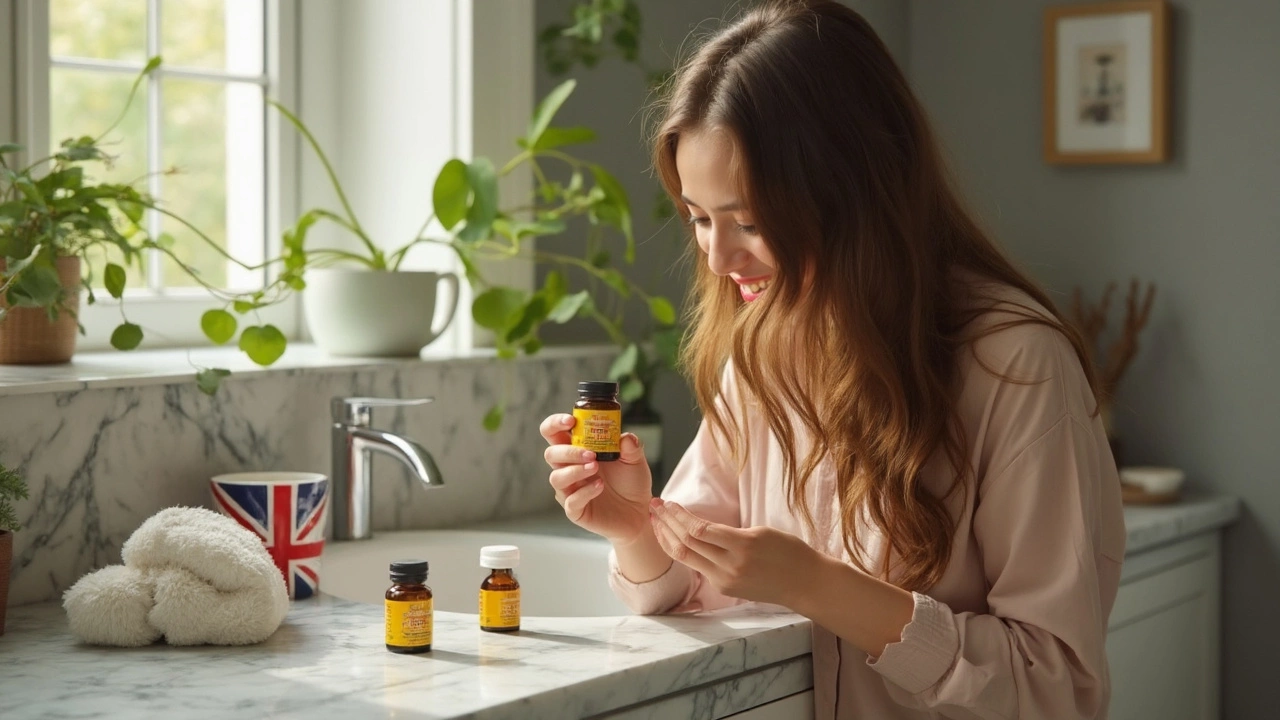Hair Supplements: Your Quick Guide to Stronger, Fuller Hair
If you’ve tried shampoos, masks and pricey treatments with little luck, you might be wondering if a pill could help. Hair supplements are a simple way to give your strands the nutrients they often miss in everyday meals. In this guide we’ll break down what works, what to avoid, and how to make the most of any product you pick.
What to Look for in a Hair Supplement
The best formulas combine a few key ingredients that research links to hair health. Biotin (vitamin B7) supports keratin production, which is the main protein in hair. Collagen peptides add amino acids that help strengthen the hair shaft. Zinc and iron keep the scalp oxygenated, while vitamin D and omega‑3 fatty acids reduce inflammation that can lead to breakage.
Look for products that list these nutrients in natural, clinically proven doses. Avoid supplements that rely on exotic herbs with no solid data. A clear label and third‑party testing badge are good signs the brand is trustworthy.
How to Use Supplements Safely
Consistency beats occasional mega‑doses. Take the recommended amount every day, preferably with a meal that contains some healthy fat – it helps the body absorb vitamins like D and omega‑3s. Pair the pills with a balanced diet rich in leafy greens, nuts, eggs and fish for extra support.
Give any supplement at least 8‑12 weeks before expecting visible change. Hair grows roughly half an inch per month, so the process is slow. If you notice side effects such as stomach upset, stop and talk to a pharmacist or doctor. People with thyroid issues should check biotin levels, as high doses can interfere with lab tests.
Combine supplements with good hair care habits: gentle shampoo, limited heat styling, and regular trims. A healthy scalp environment lets the nutrients you’re feeding your body do their job.
Remember, supplements aren’t a miracle cure, but they can fill the gaps that diet alone might miss. Many readers on our site who tried biotin‑rich pills alongside a protein‑rich diet reported less shedding and a bit more volume after three months.
Ready to choose? Start with a product that offers a blend of biotin, collagen, zinc and vitamin D, and check user reviews for real‑world results. If you’re skeptical, try a smaller pack first to see how your body reacts.
In short, hair supplements work best when you treat them as part of a bigger hair‑health plan. Pick a clean formula, stay consistent, and give it time. Your strands will thank you.

